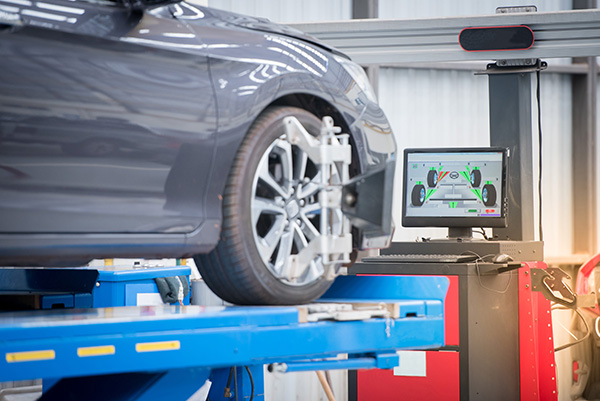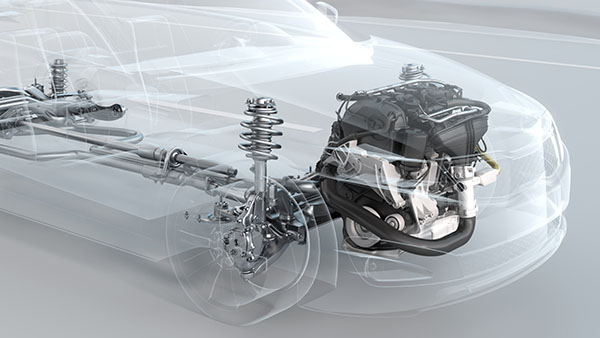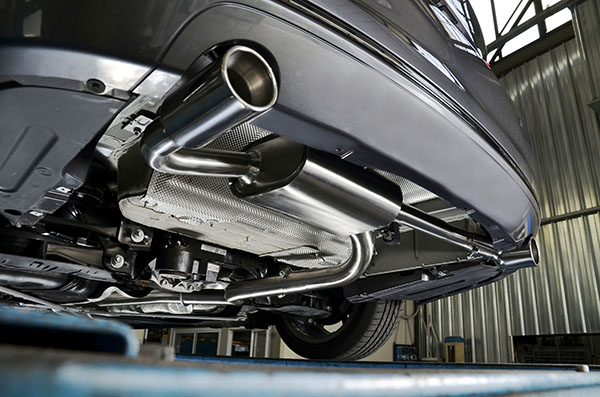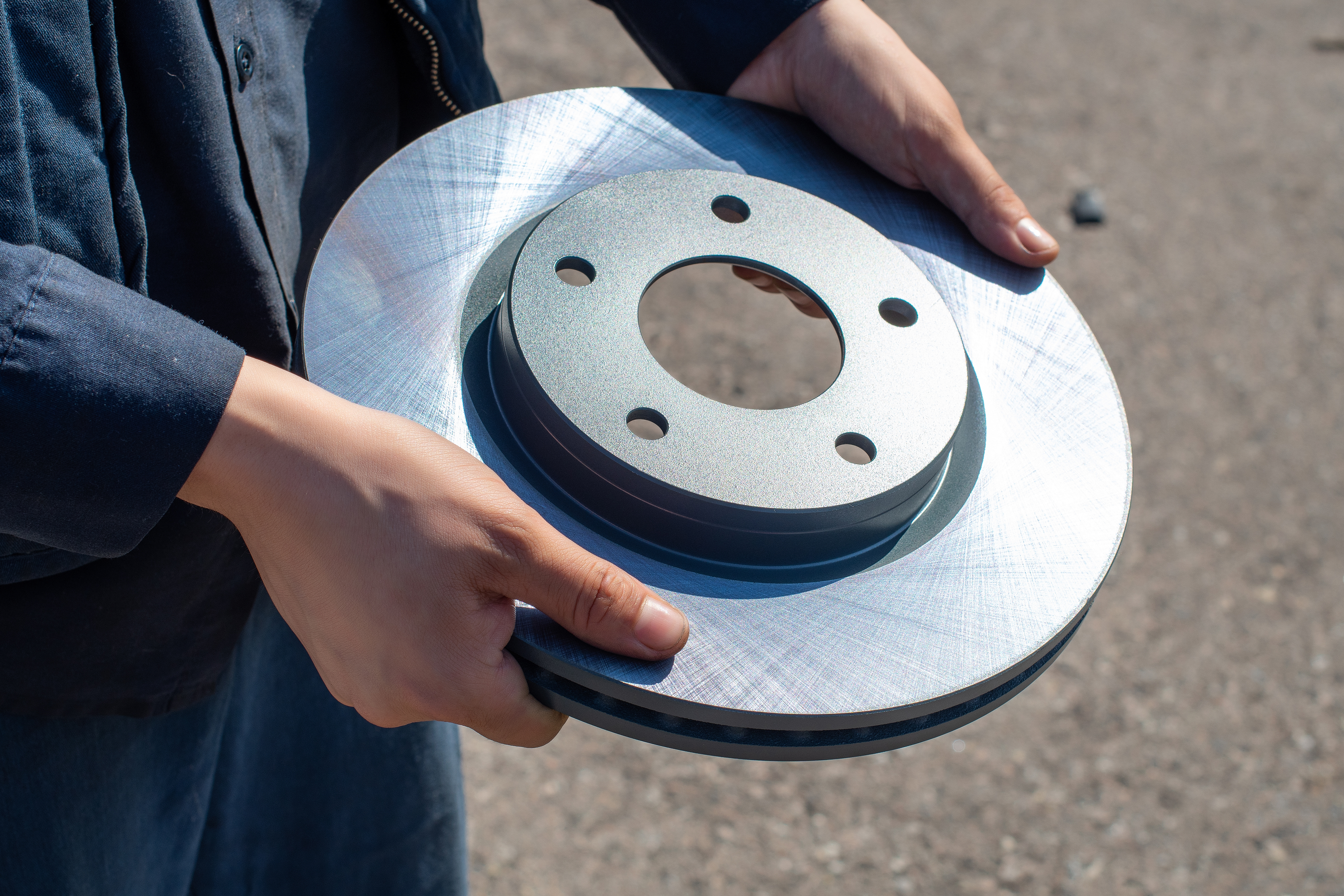Posted on 4/27/2024

Have you ever noticed your car pulling to one side while driving straight or felt vibrations through the steering wheel? These could be signs that your vehicle needs a wheel alignment. But what exactly is wheel alignment, and how can you tell if your car needs it? Wheel Alignment Wheel alignment, also known as tire alignment, refers to adjusting the wheels' angles to ensure they are perpendicular to the ground and parallel to each other. Proper alignment is crucial for maintaining optimal vehicle handling, tire wear, and overall safety on the road. Signs Your Car Needs Wheel Alignment Uneven Tire Wear: Excessive wear on the inside or outside edges of the tires can indicate misalignment. Vehicle Pulling: If your car veers to one side without input from the steeri ... read more
Posted on 3/29/2024

Have you ever experienced the unsettling sensation of your car shaking while driving at higher speeds or accelerating? It's not only inconvenient but also potentially dangerous - here is why: Why Is the Shaking Sensation Present? When your car shakes while driving fast or accelerating, it's typically a sign of underlying mechanical problems or imbalances within the vehicle's systems. Depending on the severity of the issue, the shaking sensation may vary in intensity, from subtle vibrations to more pronounced jolts. Possible Causes of Car Shaking Wheel Alignment Issues Misaligned wheels can cause your car to shake, especially at higher speeds. When the wheels are not properly aligned, they can create uneven tire wear and instability, leading to vibrations felt through the steering wheel and chassis. Tire Imbalances or Damage Uneven tire wear, tire imbalances, or damaged tires can also contribute to shaking while driving. Tires that ar ... read more
Posted on 2/29/2024
.jpeg)
Driving a truck brings a sense of freedom and capability like no other vehicle. Whether you're navigating through rugged terrain or cruising down the highway with a filled cargo bed, your truck is your reliable companion. Regular maintenance is key to keeping it running smoothly and looking its best - here is why. Understanding Your Truck's Unique Needs Trucks are built to handle tough conditions, but they still require regular TLC to perform at their best. Unlike smaller vehicles, trucks have larger engines, heavier frames, and specialized components that demand specialized care. Most of the time, the most important factor that plays a big role in their maintenance needs is their weight. A heavier car means that each component has to work overtime to perform well - in some cases, even better than sports cars. 1. Keep Up with Regular Oil Changes One of the most important maintenance tasks for any vehicle, including trucks, is ... read more
Posted on 1/27/2024
.jpeg)
Brake calipers play a crucial role in vehicles' braking systems, serving as a vital component in ensuring road safety. Today's article aims to provide an objective analysis of brake calipers, exploring their function, types, structure, common issues, and maintenance tips. Brake Calipers Explained Brake calipers are mechanical devices positioned over the vehicle's rotor, next to the wheels. They function by pressing the brake pads against the rotors to slow down or stop the vehicle. The importance of brake calipers lies in their central role in the braking process, directly influencing the vehicle's stopping ability and safety. Different types of brake calipers are designed for various vehicle models and driving conditions. The most common types are fixed calipers an ... read more
Posted on 12/22/2023
.jpeg)
Cruising down a scenic route, the road unfurling before you, and suddenly, a deer leaps out (or someone brake checks you)! Your heart races, your foot instinctively slams down on the brake pedal, and then... silence. The car halts, safe and sound. In that moment of truth, your brake pads were the unsung heroes. Choosing the right brake pads can be just as crucial as making split-second decisions on the road. With an array of options available in today's market, it's essential to understand what sets them apart so you can make an informed decision about which pads will best suit your driving needs and keep you safe in those critical moments. The Different Types of Brake Pads Brake pads are not one-size-fits-all components; they vary in material composition, each with distinct benefits and considerations: Ceramic Brake Pads These high-end contenders ... read more
Posted on 11/29/2023

Often overshadowed by the more noticeable elements of your vehicle, the differential is a mechanical wonder that deserves its spotlight. That's why we will unravel the unknown details of differentials, exploring not just what they are but delving into the delicate art of keeping them finely tuned for a seamless ride. Understanding the Differential At the heart of your vehicle's drivetrain lies the differential – a mechanical wizardry that allows your wheels to rotate at different speeds. This seemingly simple yet ingenious device enables smooth cornering and ensures that your inner and outer wheels cover varying distances when turning. We know that there are a few of you who might be interested in the history behind this component, so here is a quick crash course on it! It traces its roots to the early 19th century. Invented by French engineer Onésiphore Pecqueur in 1827, the differential revolutionized wheeled transport ... read more
Posted on 10/28/2023

As you pull out of your driveway, you notice an ominous puddle of fluid beneath your beloved car. Your heart sinks, and a surge of worry ripples through you. What could be causing this disconcerting leak? From the unsettling sight of an unknown fluid to the potential implications for your vehicle's health, fluid leaks can trigger a whirlwind of concerns for any car owner. To unravel the mystery of these mysterious drips and drops, let's go on a trip through the common reasons behind your car's fluid leaks and understand why early detection and intervention are key to preserving the well-being of your cherished ride. Coolant Seepage The antifreeze or coolant in your car is essential for maintaining optimal engine temperature. A leaking coolant system, often indicated by bright green, pink, or yellow puddles, can result from a compromised radiator, a damaged hose, or a malfunctioning water pump, necessitating immediate attention to prevent engine overheatin ... read more
Posted on 9/29/2023

As a parent, guiding your teenager through the process of learning to drive is both a significant responsibility and a milestone. It's a time when your child gains independence and a valuable life skill. However, it's essential to ensure they learn how to drive safely and confidently. Here are our top 10 tips! 1. Start with a Solid Foundation Before your teen hits the road, make sure they have a good grasp of the basics. Begin with discussions about road signs, rules, and the importance of defensive driving. Familiarize them with the vehicle's controls and functions so they feel comfortable behind the wheel. 2. Choose a Safe Learning Environment Begin in a safe and low-traffic area, such as an empty parking lot or quiet residential street. This setting allows your teen to practice basic maneuvers like steering, braking, and turning without the pressure of heavy traffic. 3. Gradual Progression Introduce new skills gradually. Start with the basics and progressively move ... read more
Posted on 8/31/2023

Whenever your car's engine ignites, an intricate ensemble of mechanical wonders awakens within the engine compartment. Yet, within this orchestration, a discreet but vital performer takes center stage—a component dedicated to mitigating the clamor of engine noise. This unassuming star is none other than the muffler, an often overlooked constituent of your vehicle's exhaust system. Throughout this article, we will embark on a comprehensive exploration of the muffler's true purpose, unravel the scientific principles that govern its operations, and unveil its multifaceted significance that transcends its role as a mere noise-dampening apparatus. The Basics Function At its core, a muffler is an acoustic device designed to reduce the noise generated by the exhaust gasses escaping from the engine. It's situated within the exhaust system, which channels these gasses away from the engine, through a series of pipes, and eventually out of the vehicl ... read more
Posted on 7/31/2023

When it comes to road safety, a vehicle's braking system is of utmost importance, especially when traveling at high speeds. Brakes are a critical component that allows drivers to slow down or come to a complete stop when necessary. However, a malfunctioning or poorly maintained braking system can spell disaster, particularly at high speeds. Even the slightest wark in the brake rotors, for example, can result in a fatal crash or at the very least a nerve-racking experience. Reduced Stopping Power One of the most alarming consequences of bad brakes when traveling at high speed is the reduced stopping power. A compromised braking system may have worn-out brake pads, malfunctioning calipers, or air in the brake lines, all of which can significantly hamper the ability to bring the vehicle to a stop quickly and effectively. In emergency situations, this loss of stopping power can lead to collisions or cause the driver to lose control of the vehicle. Brake Fade ... read more